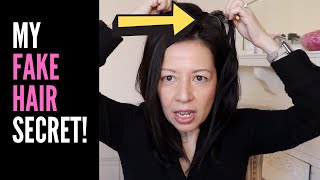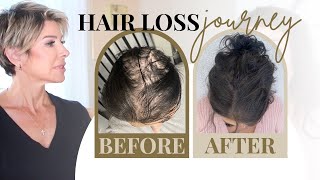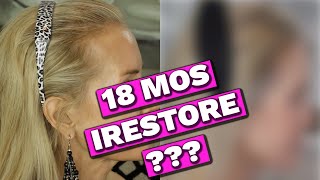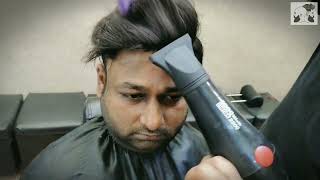Why You Should Consider Laser Hair Growth Treatment
If you’re seeking ways to regrow hair, you’re likely overwhelmed by the abundance of options on the market. Creams, ointments, prescription drugs, dietary changes, and hair transplant surgeries are just a few of the choices available. As scientists and medical researchers gain a better understanding of the causes of hair loss, existing technologies improve. Such is the case with laser treatment for hair growth.
What is Low Light Laser Hair Growth Treatment?
LLLT (Low Light Laser Therapy) is a painless, non-invasive procedure that uses infra-red laser diodes to stimulate the hair follicles in areas of the body (usually the scalp) where more hair growth is desired. When you use laser treatment for hair loss, no drugs are necessary, and there are no side effects. It’s widely accepted that LLLT is safer and more tolerable than surgical hair replacement procedures.
How Does LLLT Work?
Also known as cold laser therapy or red-light therapy, low-dose laser treatments radiate photons into the weak cells located deep inside the hair follicles to heal them and promote hair growth.
Depending on the level of hair loss, sessions can take from 20-60 minutes and can be performed in a doctor’s office or with a take-home helmet or laser brush.
Benefits
- Increases the flow of blood to the hair follicles
- Encourages the acquisition of nutrients into the cells
- Helps remove harmful DHT (a sex hormone that makes you lose your hair faster) from the scalp
- Promotes more oxygen to the hair cells and stimulates the production of calcium ion
- Steps up the body’s natural production of ATP (adenosine triphosphate), an organic compound that provides energy for cellular processes
LLLT, along with the correct use of topical hair restoration products such as Rogaine, acts as a catalyst that can help bring back natural hair growth with:
- No scarring
- No need for incisions
- No anesthesia
Laser Treatment for Hair Loss Isn’t for Everyone
Low-level laser therapy isn’t the savior for everyone. First of all, it’s not cheap. A full round of treatment can cost several thousand dollars, and there’s no guarantee it will work.
Laser hair growth treatment won’t work at all in situations where baldness has existed for years. It also won’t produce hair growth where there are no follicles to stimulate, such as in scars and other areas where follicles are already dead or non-existent.
Advantages and Disadvantages of Low Light Laser Therapy
The particular mechanism that is used can also make a difference, and there are advantages and disadvantages to each:
| Mechanism | Advantage | Disadvantage |
| In-office helmets | Physician-supervised | Expensive doctor visits |
| Take-home helmets | Convenient for home use | Expensive to purchase or rent |
| Laser combs | Convenient for anywhere use | No easy way to track the amount of time the follicles have been exposed to the laser beam.
A chance of eye damage from the laser diodes flashing in the retina.
|
The diameter and wavelength of the laser’s beam, the number of laser diodes, the pulse rate, and the length and frequency of sessions can influence the success of treatment.
Unfortunately, there are no definitive or scientifically proven optimal levels of treatment; different doctors have different settings for different patients, and they don’t always agree with each other.
Do Your Homework
Try to speak with someone with similar hair loss patterns and hair texture to see what worked for them. You’ll find these people on hair loss forums or even walking out of doctors’ offices, and if you’re bold enough to introduce yourself, you’ll gain valuable information.
Investigate LLLT studies where human hair regrowth has been documented, and then purchase the same delivery mechanism. Follow the precise methodology used in the research and don’t change any details involving wavelength, session frequency, etc.
Contact authors of hair loss therapy books and articles, but make sure that they are not associated with any particular method or product. Ask them their opinion, and to make sure that you’re getting completely unbiased advice, offer to hire them as an objective consultant.
Hope for the Future of Surgery-Free Hair Regrowth
The evidence that low-level laser therapy can be a promising treatment in slowing or stopping hair loss is encouraging.
After doing your research and evaluating your requirements regarding hair loss reversal, you’ll be better equipped to decide if the procedure is right for you.




